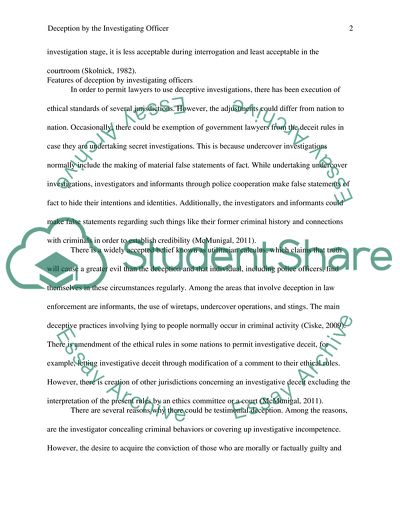Cite this document
(“Deception by the Investigating Officer Essay Example | Topics and Well Written Essays - 1750 words”, n.d.)
Retrieved from https://studentshare.org/law/1431514-deception-by-the-investigating-officer
Retrieved from https://studentshare.org/law/1431514-deception-by-the-investigating-officer
(Deception by the Investigating Officer Essay Example | Topics and Well Written Essays - 1750 Words)
https://studentshare.org/law/1431514-deception-by-the-investigating-officer.
https://studentshare.org/law/1431514-deception-by-the-investigating-officer.
“Deception by the Investigating Officer Essay Example | Topics and Well Written Essays - 1750 Words”, n.d. https://studentshare.org/law/1431514-deception-by-the-investigating-officer.


